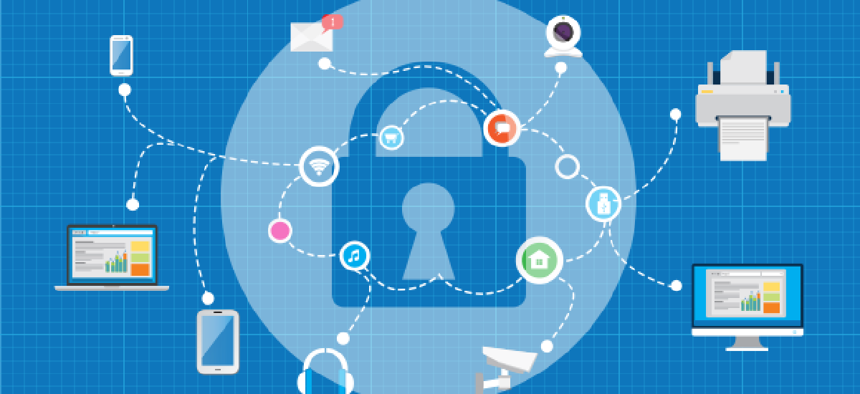White House tees up cyber labeling policy

A 2020 law could provide some legal cover for executive orders regulating software and IoT cybersecurity, but new legislation could be required.

The Biden administration is considering two new policies to give government, corporate and individual tech consumers assurance that products are being designed with cybersecurity in mind.
In the wake of two massive cybersecurity breaches, one involving the SolarWinds remote IT management software and the other exploiting four vulnerabilities in Microsoft Exchange Server software, the government is looking to move fast to elevate cybersecurity standards for products used by government, industry and consumers.
During a background briefing on March 12, a senior administration official told reporters that executive actions are coming in the "next couple of weeks" to give security grades to software companies and to add security labels to internet-of-things devices.
"Singapore has an interesting model where they provide cybersecurity standards for different Internet of Things devices, like baby monitors, so that moms who want to buy secure products have a really easy way to put their money on it," the official said, according to the White House transcript of the briefing. "And we don't have that in the U.S. today; we don't have that transparency so that people can make a market for cybersecurity."
On the software side, the official mentioned a policy put in place by former New York City Mayor Mike Bloomberg to post health inspection grades outside restaurants.
"We're looking to do a very similar thing with cyber and the cybersecurity of software companies we buy software from," the official said.
A big question will be whether industry submits tamely to new regulation or challenges the government's authority to impose labeling through executive order.
A former government official with a background in cybersecurity told FCW that he expected the government to move quickly regardless of industry's perspective. The former official spoke on background because he was not speaking on behalf of his employer.
"If you look at the makeup of the National Security Council's cyber staff -- it's all former National Security Agency people," the former official said. "They're not ones to start with a listening session with industry -- they look at the threat landscape and they want to address it."
One possible legal authority for executive action is the Internet of Things Cybersecurity Improvement Act, signed into law in December 2020. The bipartisan legislation looks to regulate the security of IoT devices acquired by the federal government. The bill tasks the National Institute of Standards and Technology with issuing recommendations for secure development, identity management, patching and configuration management for IoT devices. Under the law, the Office of Management and Budget is supposed to issue guidelines to federal agencies that are consistent with NIST's recommendations. The law also mandates a Federal Acquisition Regulation update to implement NIST guidelines.
However, the IoT legislation only applies to federal procurement. The legislative sponsors of the act hoped the market power of the federal government would influence manufacturers to adopt NIST standards for all IoT products, but there's no regulatory requirement for sale of products to the general public. Additionally, the law is based on a narrow definition of an IoT device that excludes personal computers, smartphones and larger computing systems.
"If you want to extend that to commercial," the former official told FCW, "you're going to need a law -- an executive order is not going to scratch that itch."
The Cybersecurity Solarium Commission, in its final report, recommended that Congress establish a new nongovernmental, nonprofit entity called the "National Cybersecurity Certification and Labeling Authority." The new organization would be charged with "establishing and managing a voluntary cybersecurity certification and labeling program for information and communication technologies," covering a broad range of products including software, devices, cloud services, industrial control systems and more.
"There's a lot of pressure to adopt what the Solarium Commission said on [labeling]," the former official told FCW. "They're going to move. They have to move on software because of SolarWinds and on IoT because the average consumer understands it."
The Biden administration is looking to engage with the public on the critical problem of cybersecurity weakness to security and to the economy.
"We're leaning forward to alert Americans and convey the seriousness," the senior official said on the March 12 call, about the ongoing issues with the Microsoft Exchange vulnerabilities. "The National Security Advisor tweeted early and more than once, signaling how important this is. I think this is the first-ever National Security Advisor to tweet on a cybersecurity incident."



